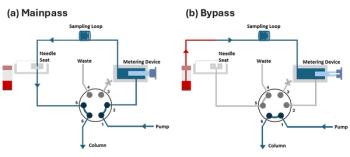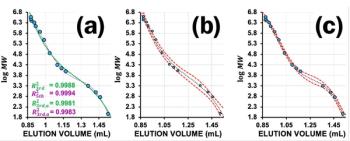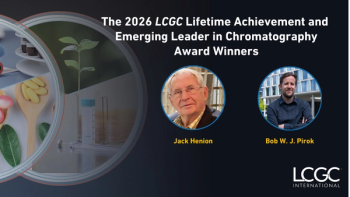
2021 Lifetime Achievement in Chromatography Award Call for Nominations
Nominate a colleague or yourself for the 2021 LCGC Lifetime Achievement in Chromatography Award
Submission Deadline: Submission Deadline: January 30, 2020
LCGC North America is seeking nominations for the 13th Annual Lifetime Achievement in Chromatography award, to be awarded in 2021.
The LCGC Lifetime Achievement in Chromatography Award, as its name implies, recognizes a separation scientist for his or her overall contributions to the field of chromatography. The winner, chosen by an independent committee, will be featured on the cover of a 2021 issue of LCGC and in an interview that will be featured in our electronic newsletter, e-Separation Solutions, and on the LCGC website.
A list of past winners can be found on the
NOMINATION INSTRUCTIONS
To nominate a candidate, please use this
to provide the information listed below about the person you are nominating.
Please e-mail the completed form to Laura Bush, the editorial director of LCGC, at
- Candidate’s full name:
- Current job title (if retired, please indicate that and include last known job title before retirement):
- Affiliation:
- Email address:
- Phone:
- Educational background:
- Area(s) of focus of work (maximum 200 words):
- Short summary, in 100 words, of the candidate’s achievements or contributions (more details can follow in the sections below):
- Please list the candidate’s most important contributions to the field of chromatography and explain briefly the significance of each (maximum 800 words):
- Number of publications:
- Number of oral and poster presentations at scientific conferences:
- Service provided to the scientific community, such as volunteer work in scientific societies, organizing conferences, work as a journal reviewer, teaching short courses, mentoring young scientists, and so on. Please quantify where possible (e.g., number of students in short courses):
- Key awards and honors:
Submission Deadline: January 30, 2020
Nominations should be sent to Laura Bush, the editorial director of LCGC, at
Questions about the submission process should be directed to Laura Bush at
Please note that this call for nominations is for the 2021 award. The winners of the 2020 LCGC Emerging Leader and Lifetime Achievement awards will be announced in the fall of 2019 and will be honored at an award symposium in the Pittcon 2020 technical program.
Newsletter
Join the global community of analytical scientists who trust LCGC for insights on the latest techniques, trends, and expert solutions in chromatography.




